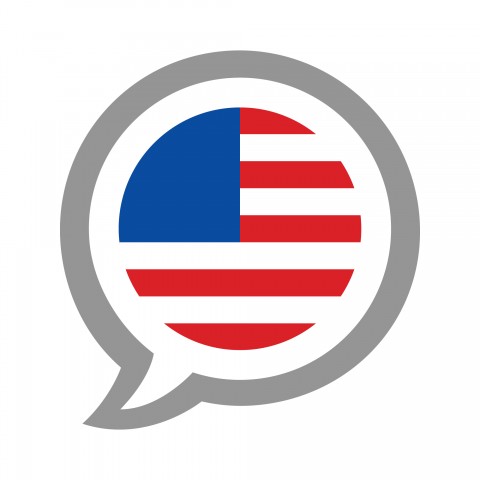Did you know that English is quite popular in Hong Kong? In fact, many HongKongers love mixing English words into their Cantonese conversations.
The history of Hong Kong English dates back to when Hong Kong was a British colony. Even after the 1997 Handover of Hong Kong from the U.K. to China, English remained one of the official languages alongside Cantonese. English is widely used in the government, business, and education sectors. Road signs, railway signs, government websites, and paper notes are all bilingual!

 Table of Contents
Table of Contents
- What is Hong Kong English?
- Hong Kong English Examples
- Loanwords from English in Cantonese
- English Words Derived from Cantonese
- Bonus: Famous Names in Cantonese
- How CantoneseClass101.com Can Help You Learn More Cantonese
1. What is Hong Kong English?
Hong Kong has a long tradition of using English, and the language remained popular even after the Handover.

In Hong Kong, students are required to know English for both their primary and secondary education. In addition, the widespread influence of Western media has gotten HongKongers in the habit of using English in their day-to-day lives. ‘Hong Kong English’ simply refers to the way in which they use the English language.
There are three manifestations of Hong Kong English:
- Code-switching (using English words and Cantonese words in the same sentence)
- Direct translations of Cantonese phrases into English
- Cantonese pronunciation of English words
2. Hong Kong English Examples
Let’s look at the three manifestations of Hong Kong English, one by one.
Code-switching
Code-switching refers to using words or phrases from two different languages in the same exchange. This is extremely common in Hong Kong. In some cases, it’s actually odd to use a Cantonese word (instead of its English equivalent) in a Cantonese conversation!
Here are some examples:
Example 1
- Chinese Characters: 我唔sure喎。
- Romanization: ngo5 m4 sure wo3
- Meaning: “I’m not sure.”
Example 2
- Chinese Characters: 我去shopping。
- Romanization: ngo5 heoi3 shopping
- Meaning: “I’m gonna go shopping.”
Example 3
- Chinese Characters: 我個friend cu唔cute啊?
- Romanization: ngo5 go3 friend kiu1 m4 cute aa3
- Meaning: “Is my friend cute?”
Example 4
- Chinese Characters: 佢去canteen食飯。
- Romanization: keoi5 heoi3 ken6-tin1 sik6 faan6
- Meaning: “He/she is going to the canteen for lunch.”
Example 5
- Chinese Characters: 幫我check一check啊。
- Romanization: bong1 ngo2 check jat1 check aa3
- Meaning: “Please help me search/check for it.”
Example 6
- Chinese Characters: 去唔去happy hour?
- Romanization: heoi3 m4 heoi3 happy hour
- Meaning: “Do you want to get a drink (during happy hour)?”
Direct translations
As Cantonese uses characters consisting of parts that depict physical objects or abstract ideas, Cantonese is a bit difficult to type. Although we have several input methods, many locals find it quicker and simpler to use English instead.

As a result, a lot of people translate Cantonese words directly into English and type them out. Some of these literal translations became popular over time and are now used frequently. But be aware that because these phrases are rooted in Cantonese culture, the literal translations might not make sense to English speakers!
Here are some examples:
Example 1
- Phrase: add oil
- Chinese Equivalent: 加油
- Romanization: gaa1 jau2
- Meaning: an exclamatory phrase of encouragement
Example 2
- Phrase: laugh die me
- Chinese Equivalent: 笑死我
- Romanization: siu3 sei2 ngo5
- Meaning: “laughed my head off”
Example 3
- Phrase: is but la
- Chinese Equivalent: 是但啦
- Romanization: si6 daan6 laa1
- Meaning: “whatever”
Example 4
- Phrase: dunno mud water they are
- Chinese Equivalent: 唔知佢哋係乜水
- Romanization: m4 zi1 keoi5 dei6 hai6 mat1 seoi2
Meaning: “don’t know who they are”

Example 5
- Phrase: enough ginger
- Chinese Equivalent: 夠薑
- Romanization: gau3 goeng1
- Meaning: “got the guts” / “brave enough”
Example 6
- Phrase: Do you big me?
- Chinese Equivalent: 你大我呀?
- Romanization: nei5 daai6 ngo5 aa3
Meaning: “Are you fooling me?”
Cantonese pronunciation of English words
The pronunciation of Hong Kong English was originally based on British English, but American English has become more influential over the past few decades.
Here are some special features of Hong Kong English pronunciation, deriving from its unique “British English, American English, and Cantonese” recipe:
Feature 1: /ð/ is pronounced as [d]
- Example: “this” is pronounced as [dis]
Feature 2: /v/ is pronounced as [w]
- Example: “vector” is pronounced as [wɛktə]
Feature 3: /v/ is pronounced as [f]
- Example: “van” is pronounced as [fan]
Feature 4: /l/ is pronounced as [n]
- Example: “violin” is pronounced as [vʌɪənɪn]
Feature 5: /n/ is pronounced as [l]
- Example: “new” is pronounced as [ljuː]
Feature 6: /t/ is pronounced as [d]
- Example: “fighting” is pronounced as [fʌɪdɪŋ]
Feature 7: /uː/ is pronounced as [ʉː]
- Example: “school” is pronounced as [skʉː]
Feature 8: /iː/ is pronounced as [ɪ]
- Example: “lead” is pronounced as [lɪd]
HongKongers tend to speak English in a flat manner, without much intonation—which is similar to how Cantonese is spoken. Be patient and attentive when speaking with natives in English!
3. Loanwords from English in Cantonese
A loanword is a word from one language that has been directly incorporated into another without translation. Because Hong Kong was a British colony for 155 years, Cantonese borrowed many words from English. We have listed thirty examples below.
| # | Chinese Characters | Romanization | Meaning |
|---|---|---|---|
| 1 | 檸檬 | ling4 mung1 | lemon |
| 2 | 曲奇 | kuk1 kei4 | cookie |
| 3 | 士多啤梨 | si6 do1 be1 lei2 | strawberry |
| 4 | 三文治 | saam1 man4 ji6 | sandwich |
| 5 | 多士 | do1 si2 | toast |
| 6 | 沙律 | saa1 leot2 | salad |
| 7 | 朱古力 | jyu1 gu1 lik1 | chocolate |
| 8 | 啫喱 | je1 lei2 | jelly |
| 9 | 芝士 | ji1 si2 | cheese |
| 10 | 奄列 | am1 lit6 | omelette |
| 11 | 忌廉 | gei6 lim1 | cream |
| 12 | 布甸 | bou3 din1 | pudding |
| 13 | 安士 | on1 si2 | ounce |
| 14 | 咪 | mai1 | mic (microphone) |
| 15 | 保齡 | bou2 ling4 | bowling |
| 16 | 卡通 | kaa1 tung1 | cartoon |
| 17 | 爹哋 | de1 di4 | daddy |
| 18 | 媽咪 | ma1 mi4 | mummy |
| 19 | 貼士 | tip1 si2 | tips |
| 20 | 菲林 | fei1 lam2 | film |
| 21 | 梳化 | so1 faa2 | sofa |
| 22 | T恤 | T seot1 | T-shirt |
| 23 | 茄士咩 | ke1 si6 me1 | cashmere |
| 24 | 波士 | bo1 si2 | boss |
| 25 | 肥佬 | fei4 lou2 | fail |
| 26 | 巴士 | baa1 si2 | bus |
| 27 | 的士 | dik1 si2 | taxi |
| 28 | 士多 | si6 do1 | store |
4. English Words Derived from Cantonese
This language exchange goes both ways, and Hong Kong has contributed quite a few words to English as well. Most Cantonese words in the English language are food-related, as Hong Kong is undoubtedly a food paradise! We’ve listed ten examples below.
| # | Chinese Characters | Romanization | Meaning |
|---|---|---|---|
| 1 | 鑊 | wok6 | wok |
| 2 | 點心 | dim2 sam1 | dim sum |
| 3 | 功夫 | gung1 fu1 | kung fu |
| 4 | 龍眼 | lung4 ngaan5 | longan |
| 5 | 茄汁 | ke2 jap1 | ketchup |
| 6 | 乾貝 | gon1 bui3 | conpoy |
| 7 | 雲呑 | wan4 tan1 | wonton |
| 8 | 白菜 | baak6 coi3 | bok-choy |
| 9 | 金橘 | gam1 gwat1 | kumquat |
| 10 | 夾心階層 | gaap3 sam1 gaai1 cang4 | sandwich class |
5. Bonus: Famous Names in Cantonese
Wondering what English names look and sound like in Cantonese? We’ve listed six examples below. Can you guess who they are? (You can find the answers at the end of this section.)

Example 1
- Chinese Characters: 湯漢斯
- Romanization: tong1 hon3 si1
Example 2
- Chinese Characters: 奧蘭度布林
- Romanization: ou3 laan4 dou6 bou3 lam4
Example 3
- Chinese Characters: 珍妮花·羅倫斯
- Romanization: zan1 nei4 faa1 · lo4 leon4 si1
Example 4
- Chinese Characters: 琦·溫絲莉
- Romanization: kei4 · wan1 si1 lei6
Example 5
- Chinese Characters: 哈利波特
- Romanization: haa1 lei6 bo1 dak6
Example 6
- Chinese Characters: 卡米拉·卡貝優
- Romanization: kaa1 mai5 laai1 · kaa1 bui3 jau1
Answers
- Tom Hanks
- Orlando Bloom
- Jennifer Lawrence
- Kate Winslet
- Harry Potter
- Camila Cabello
6. How CantoneseClass101.com Can Help You Learn More Cantonese
Do you find Hong Kong English interesting? Let us know in the comments if any of the words on our lists surprised you, or if you have any questions about what we discussed. We’d be glad to get in touch!
Are you interested in learning more about Cantonese?
With CantoneseClass101.com, you can have your daily dose of Cantonese whenever and wherever you want, through mobile apps, desktop software, and our website. We offer entertaining, engaging, and effective lessons on various aspects of the Cantonese language and culture.
Until now, we’ve delivered more than 750,000,000 lessons to thousands of happy students from all around the globe. You can learn Cantonese with over 1060 audio and video lessons delivered by our knowledgeable and energetic hosts, detailed PDF lesson notes, an abundance of vocabulary learning tools, spaced repetition flashcards, and a lively community where you can discuss the lessons with fellow learners. What are you waiting for? Download our lessons, enjoy our audio and video files, and start learning now!
Keep in mind that if you prefer a one-on-one learning approach and want to further accelerate your Cantonese learning, you can take advantage of our MyTeacher program!
Know that your hard work will pay off, and before you know it, you’ll be speaking Cantonese like a native!










